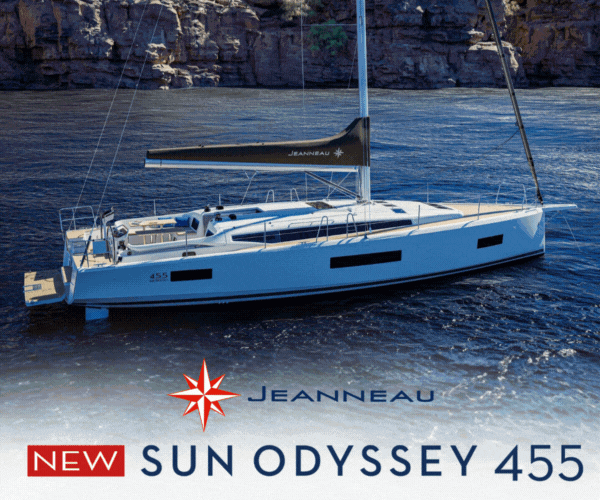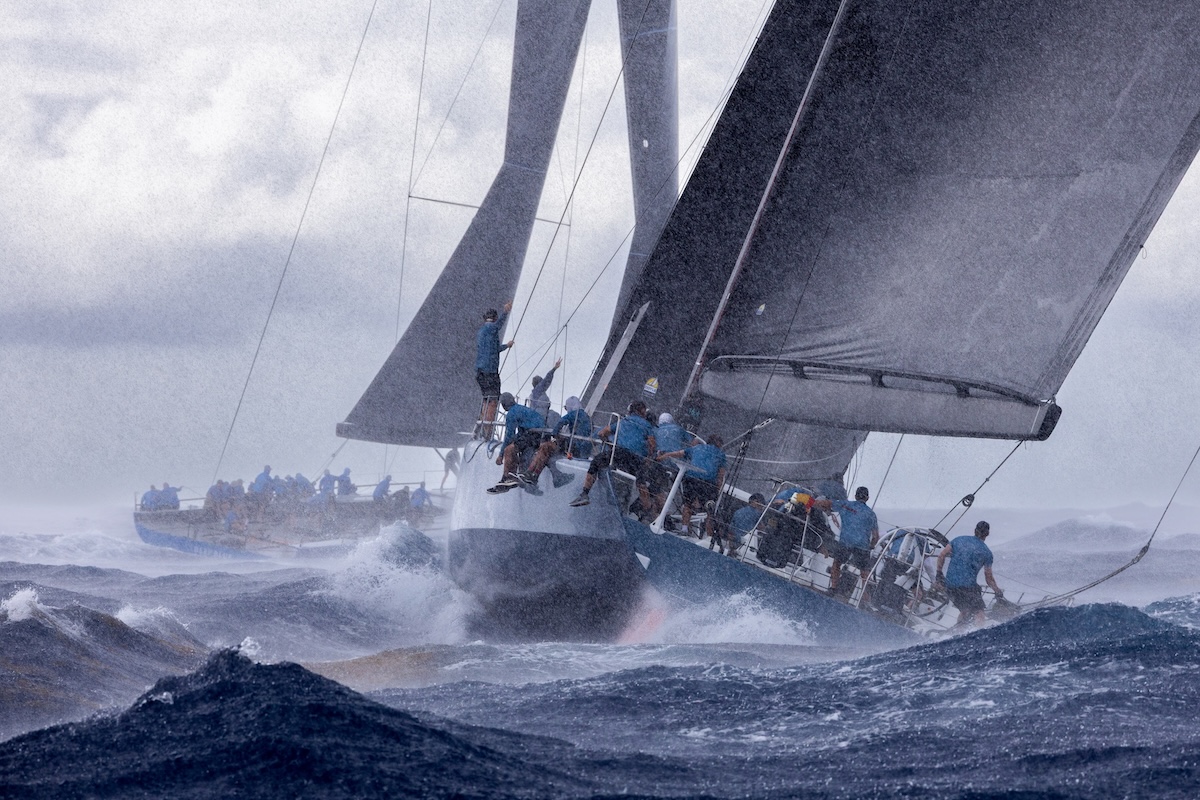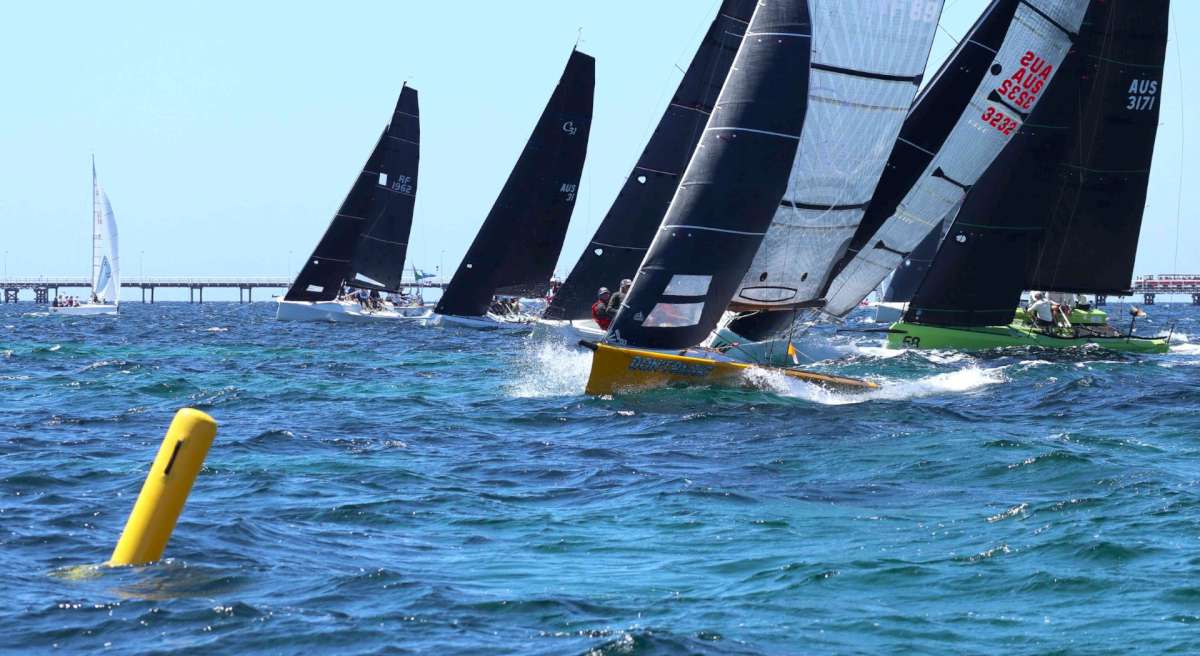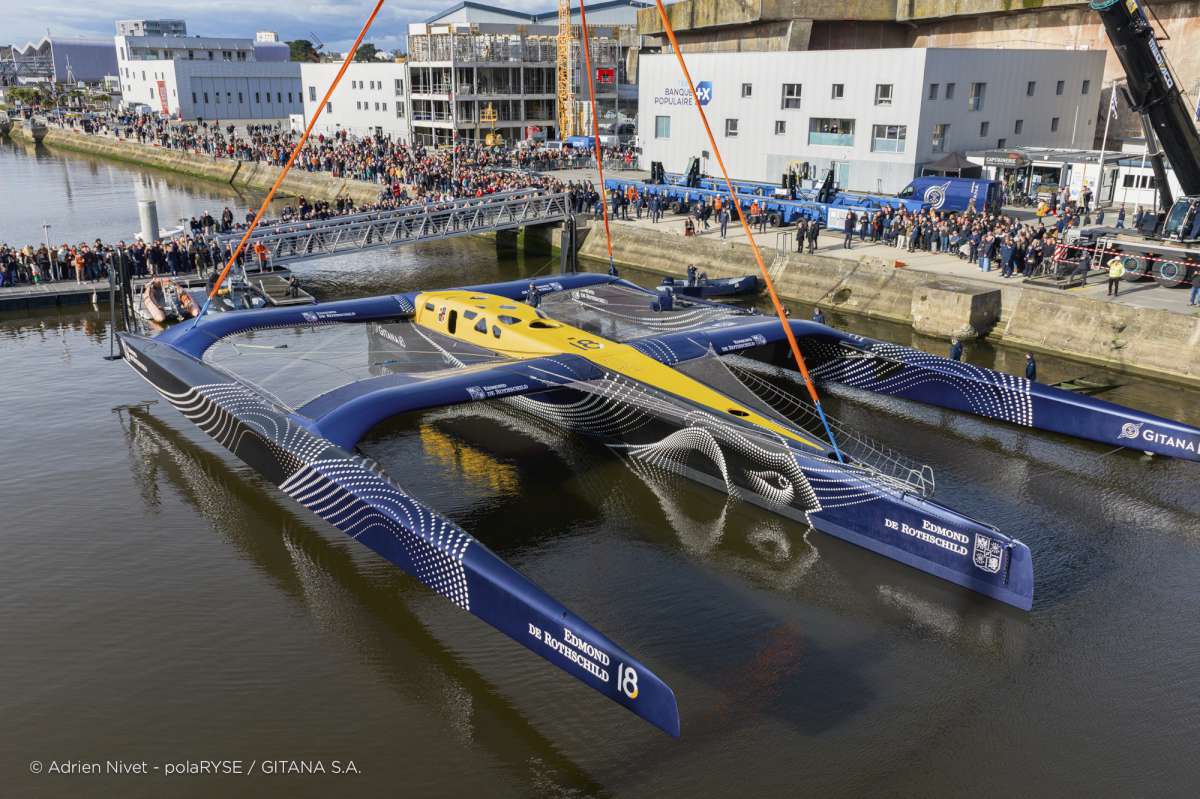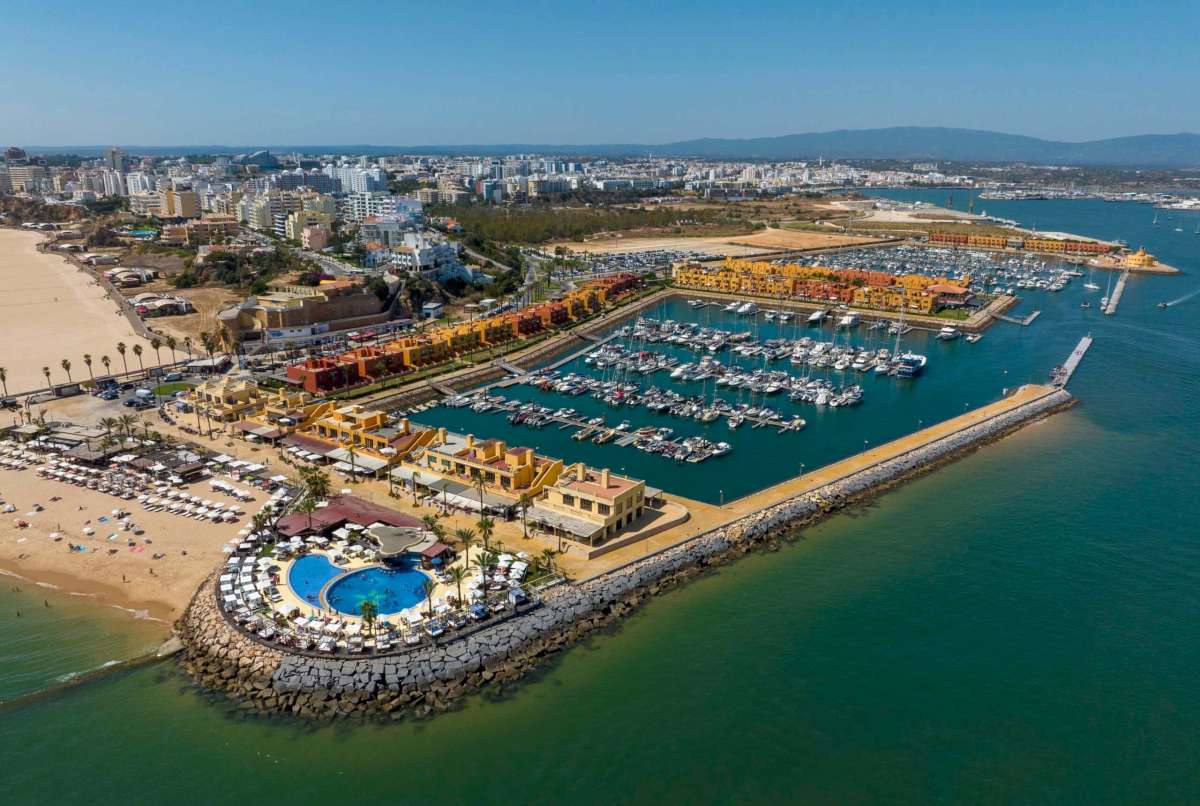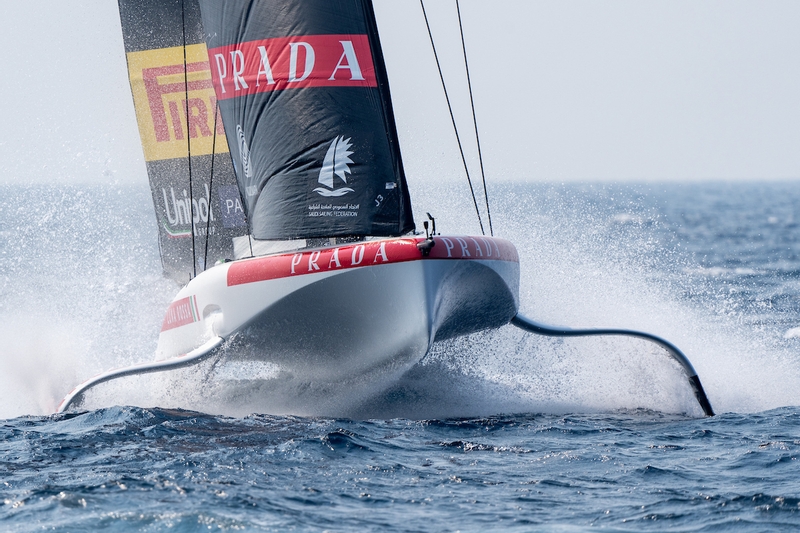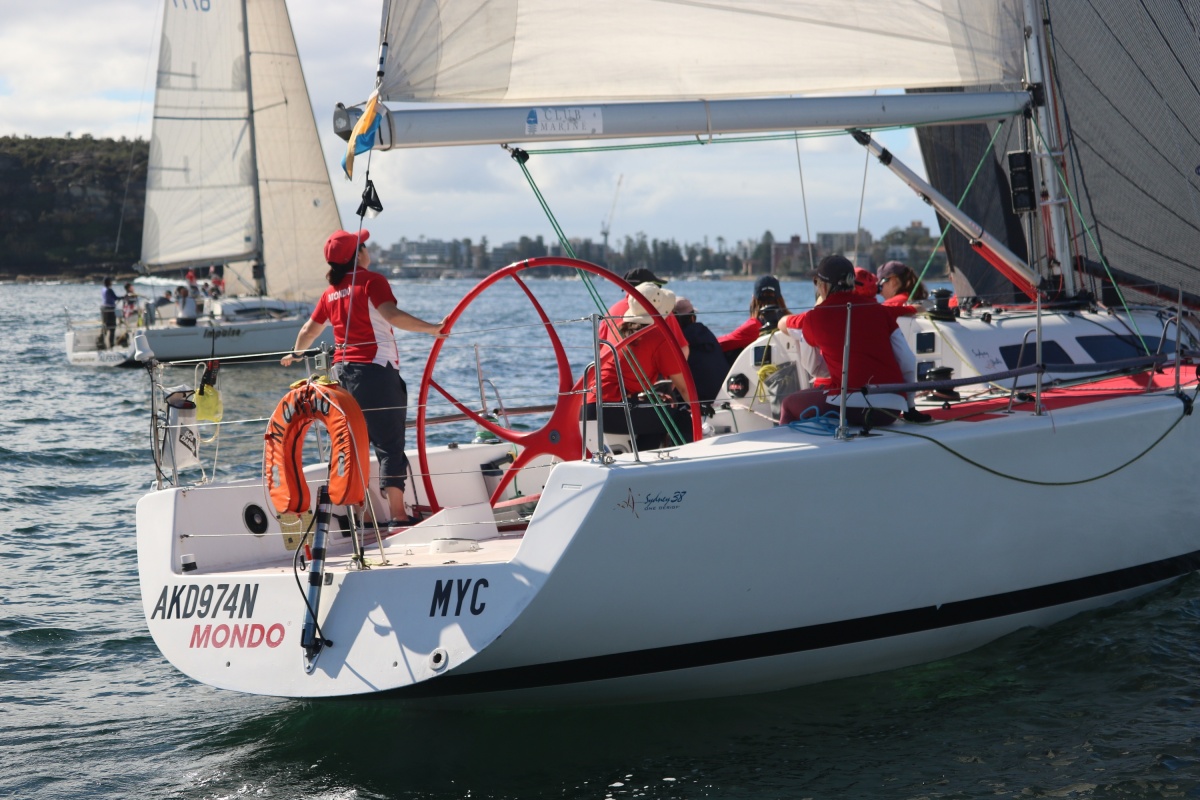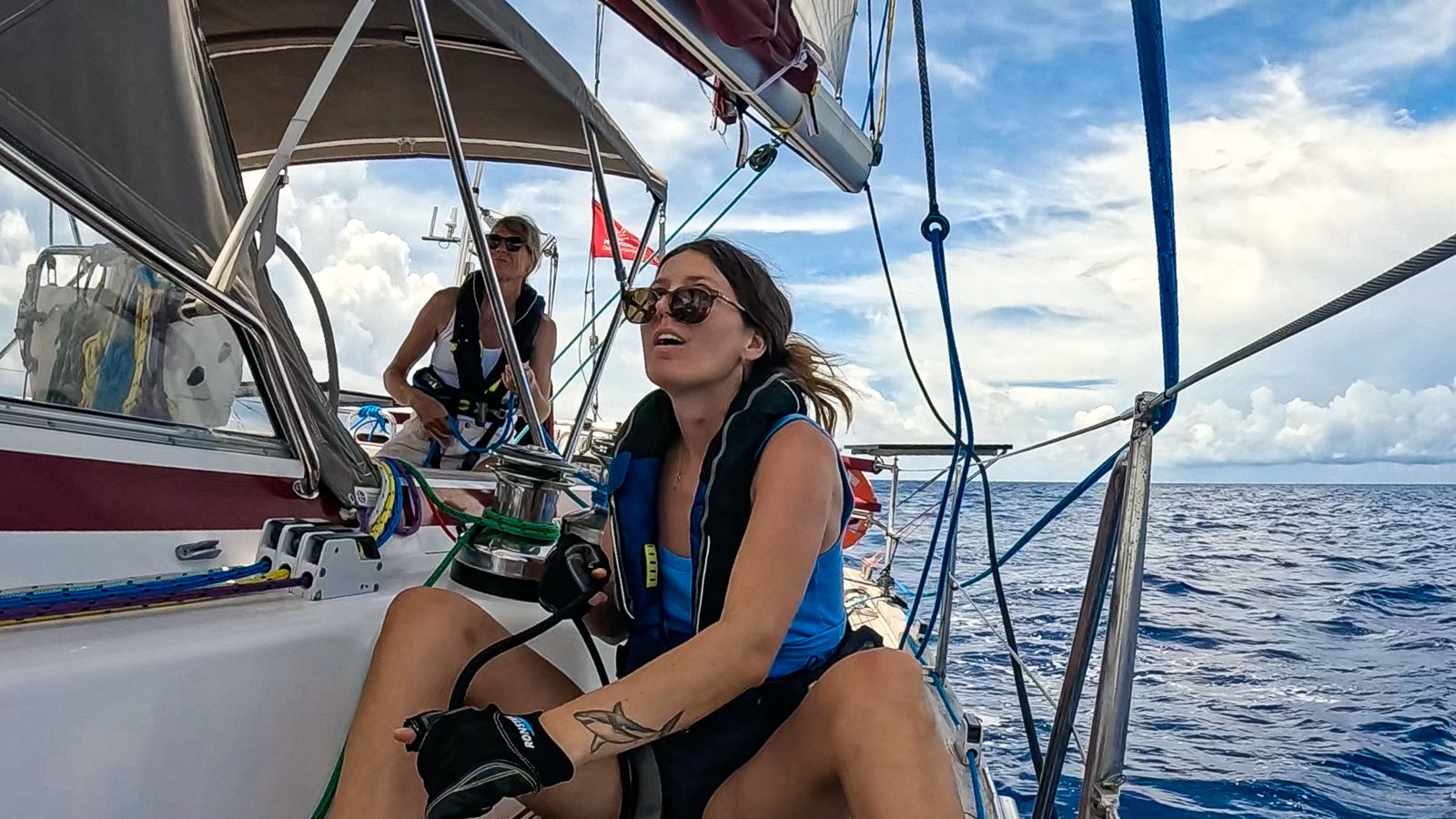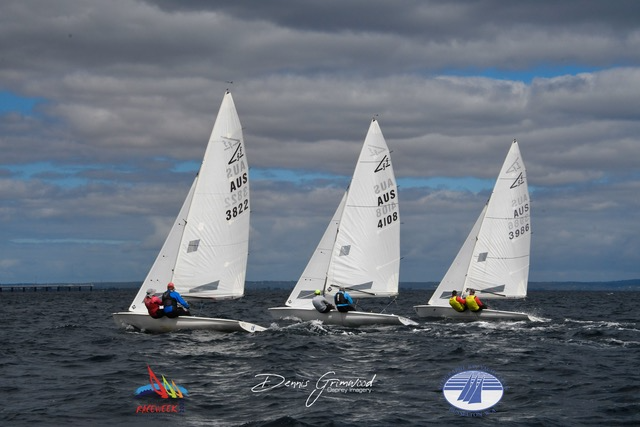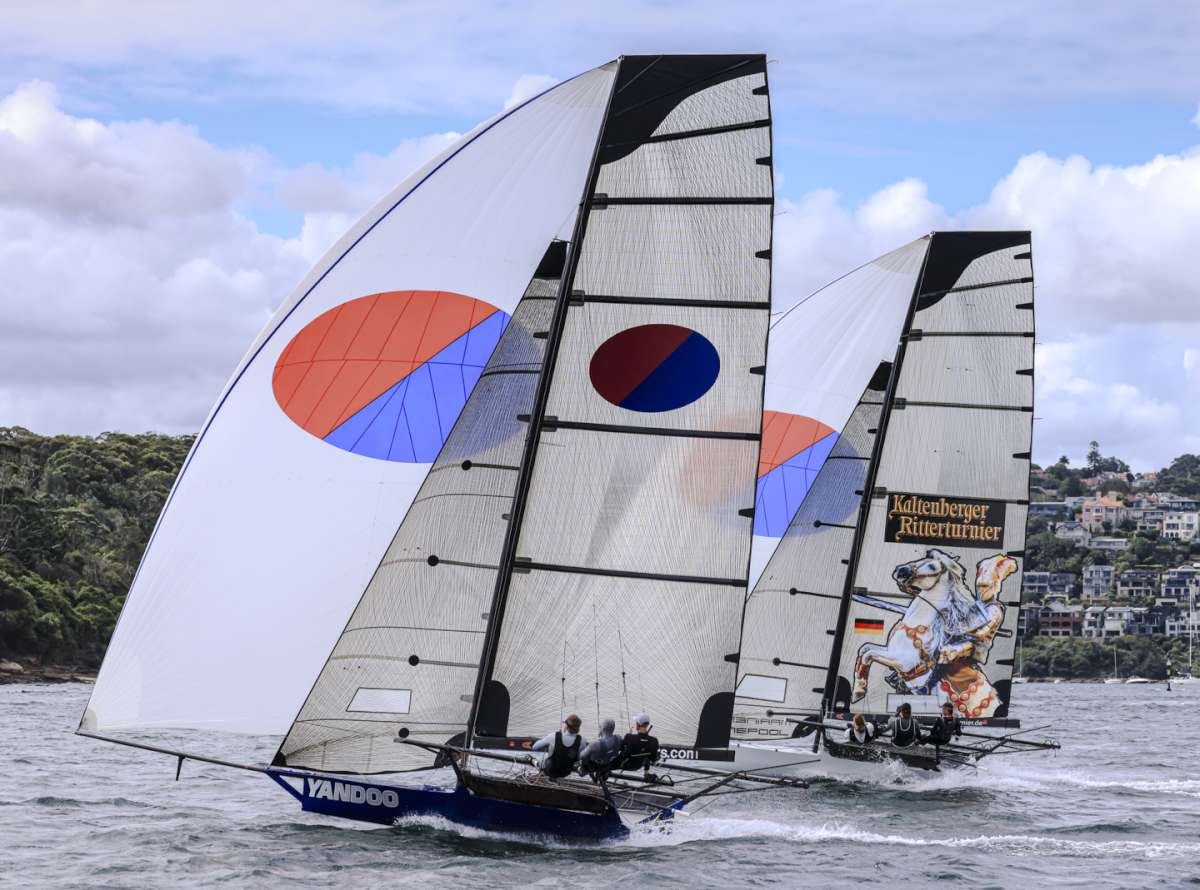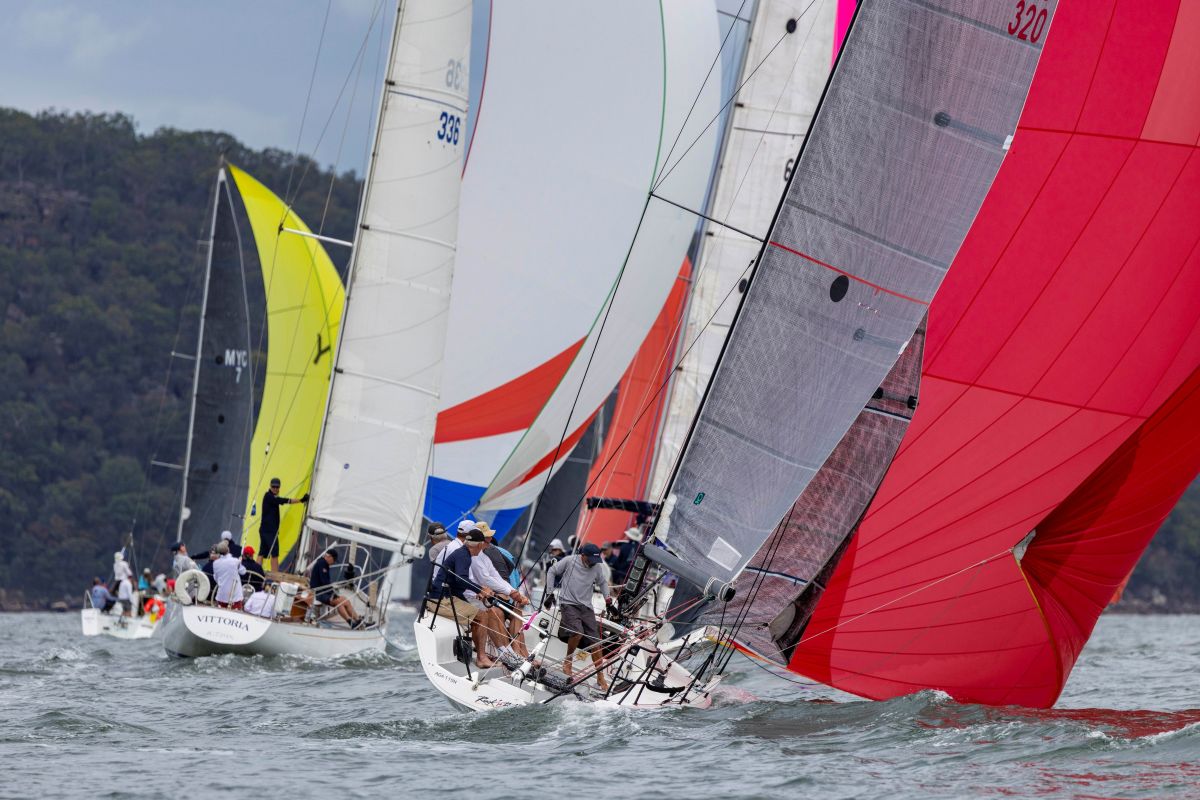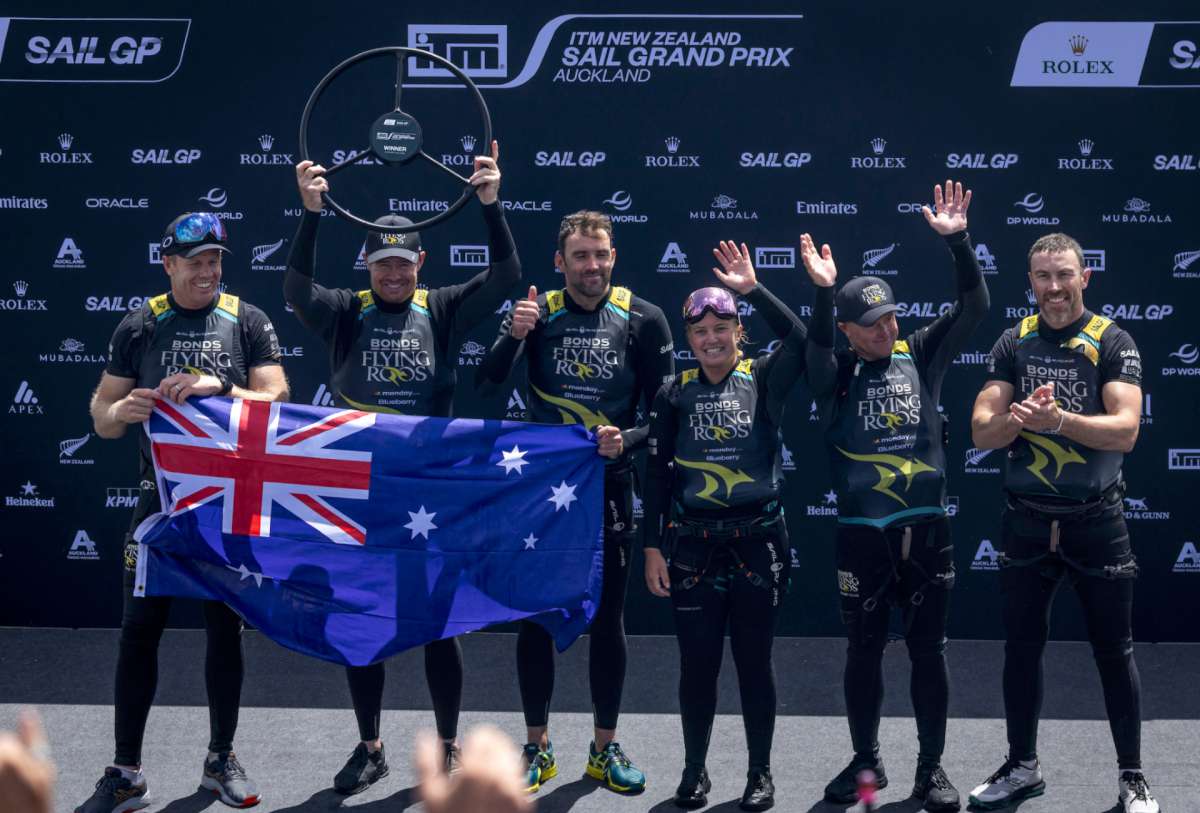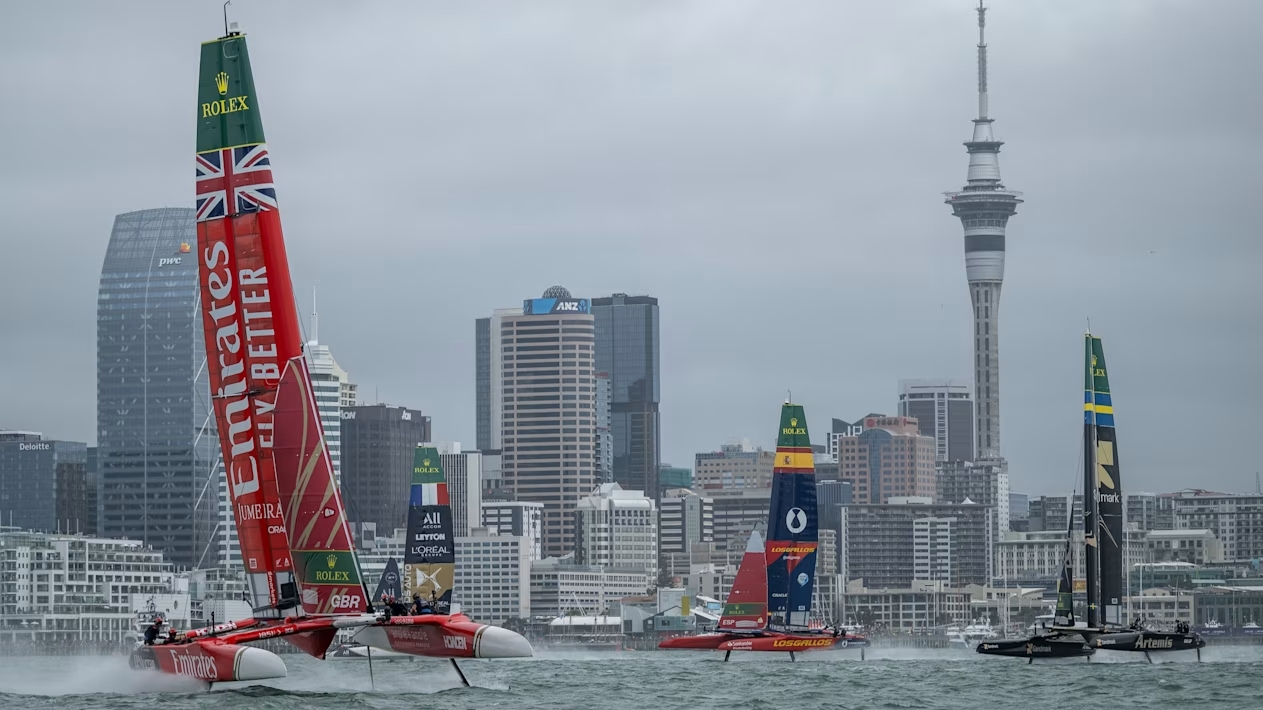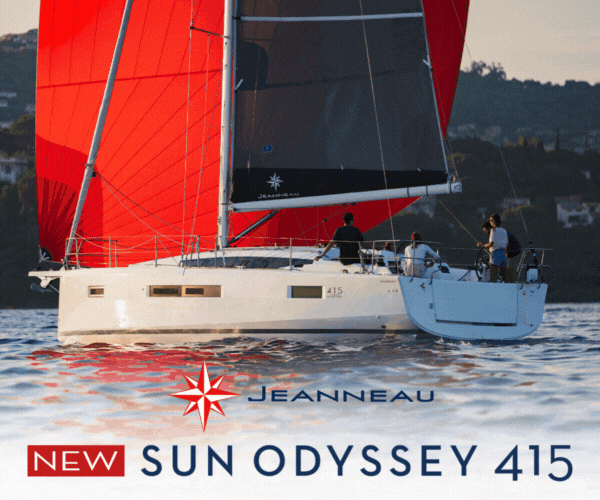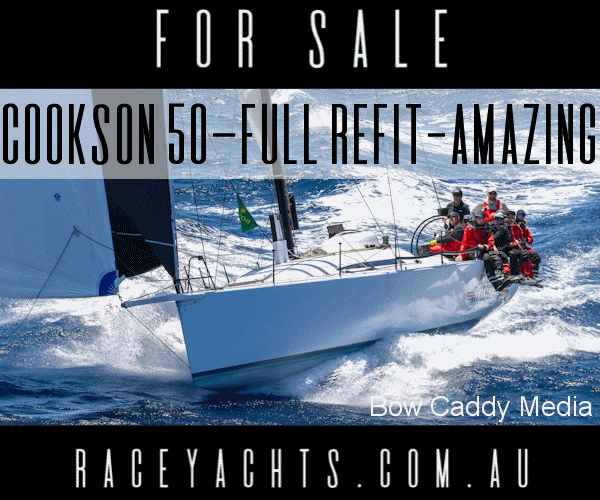The Bay of Biscay has the reputation of being one of the most feared
stretches of ocean in the world. This morning, however, it was more
pussy cat than lion for the start of Race 2 of the Clipper 09-10 Round
the World Yacht Race from La Rochelle, France, to Rio de Janeiro,
Brazil.
Just three knots of breeze barely disturbed the glassy waters as seven
of the ten 68-foot yachts opted for lightweight spinnakers to find the
most of the zephyr. Jamaica Lightning Bolt and California opted for
windseekers and surprisingly Cape Breton Island went straight for a
medium weight kite, finding enough breeze to fill it and propel them
across the start line in the middle of the fleet. Their luck didn't hold
for long though and they quickly changed down to their lightweight
spinnaker.
Ahead lies a 4,890-mile route that is expected to take around 28 days to
complete – the longest passage most of the crews will have ever made.
Along the way, they will get to experience trade wind sailing, meet King
Neptune as they cross the Equator, deal with the challenges of the
Doldrums and then work their way down the Brazilian coast before
crossing the finish line under the shadow of Sugar Loaf Mountain.
The Clipper Race is the only race in the world where the crews come from
all walks of life, all ages and with all levels of experience. Prior to
their training, some 40 percent of the crews had never stepped aboard a
sailing yacht before. The race from La Rochelle to Rio de Janeiro is the
first major ocean crossing of Clipper 09-10 and the three and a half
weeks it is expected to take them to race across the Atlantic Ocean will
be the longest period most of the crews will have spent at sea.
Team Finland crew member, Emil Vartiainen, 20, is a student, having
completed his national service with the army in his native Finland. He
says, “I'm looking forward to my first ocean crossing with a real sense
of expectation. This will be the longest I will have been at sea over
one passage. The team has discussed how we are going to deal with the
various challenges this leg will bring and we are all ready to just get
going. All we can do is do our best and see where that takes us. It will
require a lot of concentration and we'll try and keep our eye on the
ball all the time we are on watch.”
Competition between the ten yachts, each sponsored by a city or country
around the world, is fierce as is the relentless drive to score as many
points as possible and this edition of the Clipper Race is set to be one
of the closest ever. Race 2 introduces a scoring gate approximately 200
miles south west of the Canary Islands. The gate is not obligatory and
only the first three yachts to pass through will earn points (three for
the first, two for the second and one for the first). The decision the
skippers and their crews will have to make is whether to go for the
extra points on offer, or head straight for Rio and finish among the
leaders.
First to cross the start line was Cork, Ireland, closely followed by
Qingdao and Team Finland. With 28 days of racing ahead of them, it will
be a frustrating first 24 hours at sea and intense concentration will be
required to gain the maximum speed through constant sail trimming. The
Finnish team showed how maintaining focus and working constantly to find
whatever wind there is pays dividends. They quickly moved up through the
field and into the lead, closely followed by Jamaica Lightning Bolt who
worked their windseeker equally as well. Spirit of Australia and
California also pushed hard to move up through the fleet.
California's skipper, Pete Rollason, said, “We didn't get the finish we
wanted on the way down to La Rochelle and in hindsight that has been a
great motivation to get the crew fired up for the race to Brazil. It's
going to be an unknown for most of them but there is no fear over what's
to come. They are looking forward to a podium finish in Rio and that's
what we are going for.
“From a crew perspective, we'll break the passage in to a series of
achievable and manageable targets that they can work towards. My
strategy coming down to La Rochelle was always going to be safe and
steady but we are now going to be pushing a lot harder because we've got
a point to prove.”
As a watery sun rose over the town of La Rochelle, the Clipper 09-10
Round the World Yacht Race fleet was lead out of the port by Joshua, the
yacht raced 40 years ago by renowned French yachtsman, Bernard
Moitessier in the Sunday Times Golden Globe race.
Sir Robin Knox-Johnston, won the Golden Globe while Moitessier, so in
tune with the simplicity of life at sea, turned his back on the race and
completed another circuit around the Southern Ocean before making
landfall in Tahiti. Sir Robin went on to establish the Clipper Race in
order to give everyone, regardless of age or background, the opportunity
to experience ocean racing.
Standings after Race 1
1. Team Finland 10 points
2. Spirit of Australia 9 points
3. Cork, Ireland 8 points
4. Cape Breton Island 7 points
5. Jamaica Lightning Bolt 6 points
6. Hull & Humber 5 points
7. Uniquely Singapore 4 points
8. Edinburgh Inspiring Capital3 points
9. Qingdao 2 points
10. California 1 point

